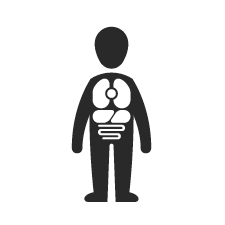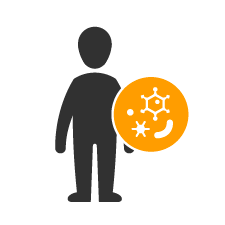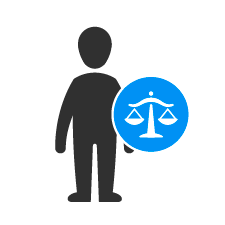Every society has a different opinion about what honour is. Honour is often closely linked to the fact that a person is recognized and valued in society. Often a person needs to fulfil certain expectations in order to be recognized. If a person does not meet these expectations, this is often understood as a violation of that person's own honour or the honour of the family.
If the honour of the family is or could be harmed, families sometimes use their power to save or restore the family's honour. The families sometimes also use violence to do this. The members of the family think that through this violence they will restore the honour of the person and the family. This is referred to as honour related violence.
In Germany, any form of violence against other people is forbidden. That is why honour related violence is also forbidden by law and is punished. Even if someone thinks another person has violated his or her honour or the honour of their family.
In Germany, it is not a violation of honour if, for example, a person
- has a (sexual) relationship before marriage,
- is no longer a virgin before getting married,
- is raped (rape is a criminal offense in Germany and is forbidden by law),
- has left his or her family to live in another place,
- is opposed to arranged marriage,
- acts differently than the family wants or expects, for example, does not go home immediately after school,
- dresses differently than the family would like,
- no longer want to be with his or her spouse or decides to leave him or her,
- decides to have an abortion.
Forms of honour related violence
In many societies, men have more freedom and power than women. The roles of men and women (gender roles) are very different. That's why most victims of honour related violence are women.
Honour related violence can have many forms, for example:
- Control: The girl or the woman is supervised by family members and cannot go out with friends or go exercise.
- Physical punishment: The girl or woman is kicked or beaten.
- Psychological punishment: The girl or woman is spoken to offensively or threatened, the other members of the family no longer speak to her, do not look at her and ignore her presence.
- The girl or woman is forced to marry against her will (forced marriage).
- The girl or woman is forced to commit suicide.
- The girl or woman is murdered by another family member.
Sometimes men also experience honour related violence, for example, if they are homosexual or if they disagree with an arranged marriage.
More than one family member can commit this type of violence. The perpetrators are usually men and rarely women. Sometimes it is the victim’s partner.
Getting help
If you are a victim of honour related violence or are afraid of it, seek help:
- Talk to someone you can trust.
- If you go to school, you can contact your teachers for help. Talk about your fear of violence. Tell them exactly what you are afraid of. Then your teachers can better help you.
- Contact specialized organizations or counselling services that can help you. For example Terre des Femmes.
- Contact the police. And talk to someone about the violence. Tell them exactly what has happened to you. Then the police can help you.











